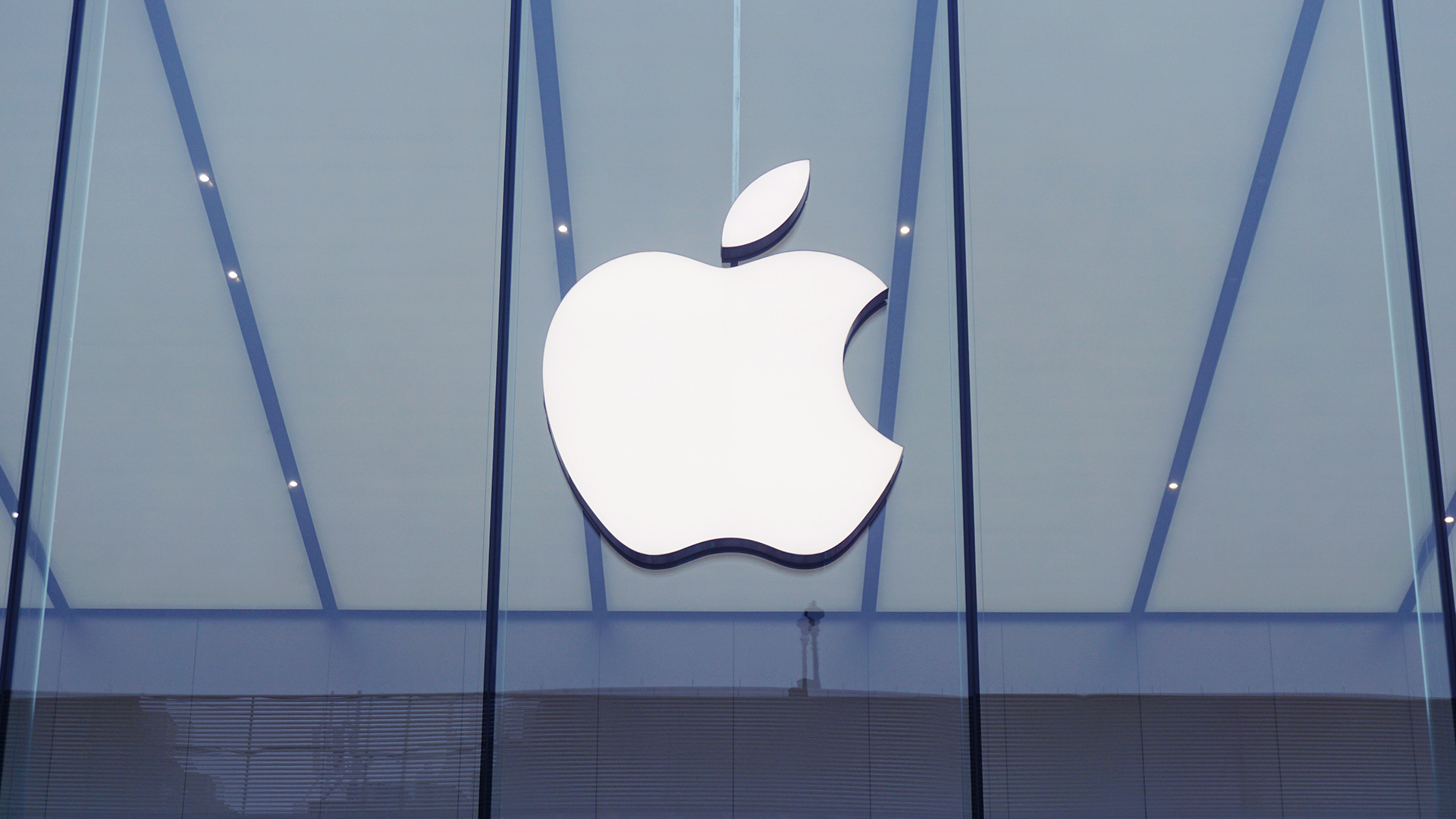Apple patches zero day linked to spyware campaign
Kaspersky researchers were the first to report a zero day used in a sophisticated attack chain


Sign up today and you will receive a free copy of our Future Focus 2025 report - the leading guidance on AI, cybersecurity and other IT challenges as per 700+ senior executives
You are now subscribed
Your newsletter sign-up was successful
Apple has released a patch for a number of vulnerabilities including an actively-exploited zero-day vulnerability linked to an ongoing spyware campaign.
The zero-day flaw, tracked as CVE-2023-38606, made it possible for an app to alter the state of a device’s kernel which could allow an attacker to leverage root-level control over a compromised device.
It was reported by researchers at Kaspersky Lab as part of an ongoing effort to uncover a sophisticated attack chain used as a vector in a spyware operation dubbed ‘Operation Triangulation’.
Researchers first reported the spyware in June, after uncovering evidence to suggest that an advanced persistent threat (APT) campaign had been working against Kaspersky staff since 2019.
At the time, it was noted that the spyware arrives through a malicious iMessage. This subsequently activates a payload using a zero-click method, so goes entirely unnoticed by victims.
Apple’s update also introduced fixes to a WebKit remote code execution flaw (CVE-2023-38594), a libxpc vulnerability that could allow an app to obtain root privileges (CVE-2023-38565), and an Apple Neural Engine flaw linked to arbitrary code execution (CVE-2023-38136).
In all, updates were released for:
Sign up today and you will receive a free copy of our Future Focus 2025 report - the leading guidance on AI, cybersecurity and other IT challenges as per 700+ senior executives
- Safari 16.6 (macOS Big Sur and macOS Monterey)
- iOS 16.6, iPadOS 16.6 (iPhone 8 and later, all iPad Pro models, iPad Air 3rd generation and later, iPad 5th generation and later, and iPad mini 5th generation and later)
- iOS 15.7.8 and iPadOS 15.7.8 (all models of iPhone 6s and iPhone 7, 1st generation iPhone SE, iPad Air 2, 4th generation iPad mini, and 7th generation iPod touch
- macOS Ventura 13.5
- macOS Monterey 12.6.8
- macOS Big Sur 11.7.9
- tvOS 16.6 (All models of Apple TV 4K and Apple TV HD)
- watchOS 9.6 (Apple Watch Series 4 and later)
In the weeks since Operation Triangulation was made public, researchers have performed more detailed analyses on the vector and exfiltration implant used by the spyware’s operators.
The threat actors exploit the zero day (CVE-2023-38606) to gain root privileges on a victim’s iOS device, and then deploy the implant, which Kaspersky dubbed ‘TriangleDB’.
The story of the #iOSTriangulation in-the-wild 0-days continues! CVE-2023-38606 is another kernel vulnerability that was used in the 0-click exploit chain. Discovered by Valentin Pashkov, Mikhail Vinogradov, @kucher1n, @bzvr_, and yours truly. Update all your Apple devices! pic.twitter.com/ReqCg4Pa73July 24, 2023
This works to alter or delete files, exfiltrate key files such as certificates or keys, and send precise geolocation data back to the operators.
Removing the spyware via a factory reset of the phone removes all evidence of the attack, and as it operates in a device’s memory it has proved difficult to track.
RELATED RESOURCE

Top ten ways to anticipate, eliminate, and defeat cyber threats like a boss
Learn how to improve your cyber resilience and vulnerability management.
By default, TriangleDB deletes itself after 30 days, though attackers can extend or shorten this period through commands send from their command-and-control (C2) infrastructure.
Researchers also found that TriangleDB’s configuration class contains a method titled ‘populateWithFieldsMacOSOnly’, leading them to warn that future such spyware attacks could occur against macOS devices.
“An app may be able to modify sensitive kernel state. Apple is aware of a report that this issue may have been actively exploited against versions of iOS released before iOS 15.7.1,” Apple wrote.
The firm stated that the issue has been resolved using an improved state management method, but did not go into further detail on what this entails.

Rory Bathgate is Features and Multimedia Editor at ITPro, overseeing all in-depth content and case studies. He can also be found co-hosting the ITPro Podcast with Jane McCallion, swapping a keyboard for a microphone to discuss the latest learnings with thought leaders from across the tech sector.
In his free time, Rory enjoys photography, video editing, and good science fiction. After graduating from the University of Kent with a BA in English and American Literature, Rory undertook an MA in Eighteenth-Century Studies at King’s College London. He joined ITPro in 2022 as a graduate, following four years in student journalism. You can contact Rory at rory.bathgate@futurenet.com or on LinkedIn.
-
 Will a generative engine optimization manager be your next big hire?
Will a generative engine optimization manager be your next big hire?In-depth Generative AI is transforming online search and companies are recruiting to improve how they appear in chatbot answers
-
 European Commission clears Google’s Wiz acquisition, citing 'credible competition' from Amazon and Microsoft
European Commission clears Google’s Wiz acquisition, citing 'credible competition' from Amazon and MicrosoftNews Regulators said there are “several credible competitors” to Google regardless of the acquisition
-
 Experts welcome EU-led alternative to MITRE's vulnerability tracking scheme
Experts welcome EU-led alternative to MITRE's vulnerability tracking schemeNews The EU-led framework will reduce reliance on US-based MITRE vulnerability reporting database
-
 Veeam patches Backup & Replication vulnerabilities, urges users to update
Veeam patches Backup & Replication vulnerabilities, urges users to updateNews The vulnerabilities affect Veeam Backup & Replication 13.0.1.180 and all earlier version 13 builds – but not previous versions.
-
 Two Fortinet vulnerabilities are being exploited in the wild – patch now
Two Fortinet vulnerabilities are being exploited in the wild – patch nowNews Arctic Wolf and Rapid7 said security teams should act immediately to mitigate the Fortinet vulnerabilities
-
 Everything you need to know about Google and Apple’s emergency zero-day patches
Everything you need to know about Google and Apple’s emergency zero-day patchesNews A serious zero-day bug was spotted in Chrome systems that impacts Apple users too, forcing both companies to issue emergency patches
-
 Security experts claim the CVE Program isn’t up to scratch anymore — inaccurate scores and lengthy delays mean the system needs updated
Security experts claim the CVE Program isn’t up to scratch anymore — inaccurate scores and lengthy delays mean the system needs updatedNews CVE data is vital in combating emerging threats, yet inaccurate ratings and lengthy wait times are placing enterprises at risk
-
 IBM AIX users urged to patch immediately as researchers sound alarm on critical flaws
IBM AIX users urged to patch immediately as researchers sound alarm on critical flawsNews Network administrators should patch the four IBM AIX flaws as soon as possible
-
 Critical Dell Storage Manager flaws could let hackers access sensitive data – patch now
Critical Dell Storage Manager flaws could let hackers access sensitive data – patch nowNews A trio of flaws in Dell Storage Manager has prompted a customer alert
-
 Apple just released an emergency patch for a zero-day exploited in the wild – here’s why you need to update now
Apple just released an emergency patch for a zero-day exploited in the wild – here’s why you need to update nowNews Apple is warning millions of users of iPhones, iPads and Macs to update their software to protect against an out-of-bounds write vulnerability